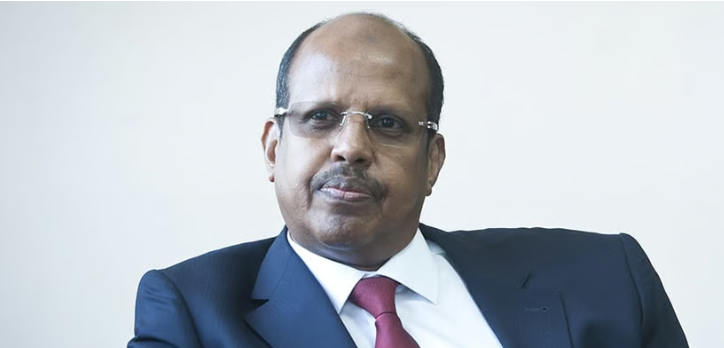A high-level delegation from the African Union Commission and the Intergovernmental Authority on Development (IGAD) met with South Sudan’s President Salva Kiir and his cabinet Monday, but there was no indication they would be allowed to meet with detained First Vice President Riek Machar.
Previous requests by senior officials, including representatives from Kenya, the AU Panel of the Wise and the European Union, to meet with Machar have been denied.
The delegation, led by African Union Commission Chairperson Mahmoud Ali Youssouf, arrived in Juba on Monday for a two-day visit amid heightened political and security tensions following Machar’s detention on March 26. The group included Mohamed Abdi Ware, the deputy executive secretary of IGAD, which brokered South Sudan’s stalled 2018 peace agreement.
The delegation held talks with several senior government officials, including Kiir and key ministers such as Information Minister Michael Makuei, Cabinet Minister Martin Elia and Foreign Minister Monday Semaya.
Also present were two ministers representing a faction of the SPLM-IO, formed by senior party officials after Machar’s detention. The ministers were Peacebuilding Minister Stephen Par Kuol, now the interim SPLM-IO leader, and Federal Affairs Minister Lasuba Wango, the interim deputy chairman.
Notably absent were ministers still loyal to Machar, including Mining Minister Martin Gama Abucha and Interior Minister Angelina Teny.
In a statement after the meeting, Presidential Affairs Minister Chol Mawut Ajongo said discussions focused on implementing the 2018 peace deal and underscored the importance of diplomatic engagement with the AU and IGAD.
The AU Commission, in its own statement, said the delegation “commended the ongoing efforts to implement the Revitalized Agreement on the Resolution of the Conflict in South Sudan” and urged stakeholders to sustain momentum toward “inclusive peace, national reconciliation and long-term development.”
It also reaffirmed the AU and IGAD’s commitment to supporting South Sudan’s stability.
However, Pal Mai Deng, water minister and spokesperson for the SPLM-IO faction loyal to Machar, expressed skepticism about the visit’s impact on easing tensions or resuming dialogue between the peace deal’s signatories.
Speaking to Radio Tamazuj after the meeting, Deng said there was no sign the delegation would meet Machar on Tuesday.
“The AU delegation met senior officials of the SPLM-IG, but we have not received any information that they will meet Dr. Riek,” he said. “It is unfair because they will only hear one side of the story.”
Deng voiced little optimism about the visit’s outcome, urging the delegation to push for a meeting with Machar. “I am not sure if the government will allow them to meet him, but we want them to try,” he said.
Diplomatic sources also told Radio Tamazuj that no plans existed for the delegation to meet Machar.
Agok Makur, secretary-general of the interim SPLM-IO leadership, confirmed to this publication that Tuesday’s agenda did not include a visit to Machar. Instead, he said, today’s discussions focused on the peace agreement’s implementation.
“Minister Stephen Par attended the meeting as interim chairman of the SPLM-IO,” Makur said, adding that Machar’s release was not discussed.
Edmund Yakani, a prominent civil society activist, said he expected the AU Commission chairperson to push for de-escalation, a ceasefire and the release of Machar and other detainees—or their trial if evidence exists.
“The AU should secure acceptance for resumption of dialogue on the implementation of the pending tasks of the peace agreement,” Yakani said. “Also, the AU should engage with all South Sudan leaders on the political transition process because there is a high deficit in trust and confidence for working together.”




